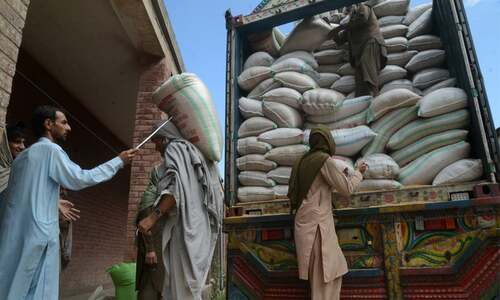ISLAMABAD: Pakistan criticised on Wednesday testing of an anti-satellite weapon by India and pointed out that because space was a common heritage of mankind every country should refrain from taking steps that may lead to its militarisation.
Earlier in the day, India had declared that it had destroyed a low-orbiting satellite in a missile test, which “proved the nation is among the world’s most advanced space powers”.
In an address to the nation, Prime Minister Narendra Modi said a missile fired from a testing facility in Odisha, eastern India, had downed the satellite at around 300 kilometres in “a difficult operation” that lasted around three minutes.
India claims shooting down low-orbiting satellite in a missile test
Weighing in on the development, the Foreign Office in Islamabad said: “Pakistan has been a strong proponent of Prevention of Arms Race in Outer Space. Space is the common heritage of mankind and every nation has the responsibility to avoid actions which can lead to the militarisation of this arena.”
The FO statement said lacunas in international laws should be bridged to ensure that no country posed a threat to peaceful scientific activities in space. “We believe that there is a need to address gaps in the international space laws with a view to ensuring that no one threatens peaceful activities and applications of space technologies for socio-economic development.”
“We hope that countries which have in the past strongly condemned demonstration of similar capabilities by others will be prepared to work towards developing international instruments to prevent military threats relating to outer space,” said the statement.
Apparently referring to Mr Modi’s claim that after the missile test India had managed to join the ranks of such developed countries as the US, Russia and China, the Foreign Office said: “Boasting of such capabilities is reminiscent of Don Quixote’s tilting against windmills.”
In his first nationally televised address since 2016, the Indian prime minister had said: “India has registered its name in the list of space superpowers. Until now, only three countries had achieved this feat.”
Mr Modi declared the anti-satellite missile test was peaceful, and not designed to create “an atmosphere of war”.
“I want to assure the world community that the new capability is not against anyone. This is to secure and defend... fast-growing India.”
However, analysts said the test would not go unnoticed in China and Pakistan, and could be interpreted as a show of New Delhi’s advancing military capabilities.
“This is less about shooting down satellites and more about proving high-altitude ‘hit-to-kill’ proficiency, which is the core competency required to get good at a range of things — including defence against nuclear-capable ballistic missiles,” Ankit Panda, of the Federation of American Scientists, said.
“This is how the message is going to be perceived in Islamabad.”
Star wars
The United States and the former Soviet Union carried out their first successful anti-satellite missile tests in 1985, and China in 2007. All are now said to be working on so-called Star Wars laser weapons to destroy satellites.
With satellites becoming increasingly important because of their intelligence gathering role — and major nations seeking to gain a foothold in space — the United States in 2014 rejected a Russian-Chinese proposal for a treaty to ban weapons in space, saying it was “fundamentally flawed” because of the lack of weapons verification measures.
India’s foreign ministry said the country “has no intention of entering into an arms race in outer space”.
“We have always maintained that space must be used only for peaceful purposes,” the ministry said.
“At the same time, the government is committed to ensuring the country’s national security interests and is alert to threats from emerging technologies.”
Mr Modi claimed the test did not violate any international treaties and was for the betterment and safety of India’s 1.3 billion people.
The announcement comes ahead of a national election in which Mr Modi is seeking a second term in office.
Voting starts on April 11 and will last nearly six weeks, with close to 900 million Indians eligible to vote in the world’s largest election.
Published in Dawn, March 28th, 2019













































Dear visitor, the comments section is undergoing an overhaul and will return soon.